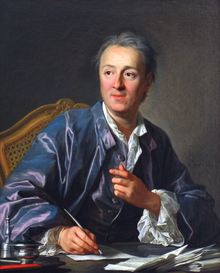
Denis Diderot (French: [dəni didʁo] ; October 5, 1713 – July 31, 1784) was a French philosopher, art critic, and writer. He was a prominent person during the Enlightenment and is best known for serving as co-founder and chief editor of and contributor to the Encyclopédie along with Jean le Rond d’Alembert.
Diderot also contributed to literature, notably with Jacques le fataliste et son maître (Jacques the Fatalist and his Master), which emulated Laurence Sterne in challenging conventions regarding novels and their structure and content, while also examining philosophical ideas about free will. Diderot is also known as the author of the dialogue, Le Neveu de Rameau (Rameau’s Nephew), upon which many articles and sermons about consumer desire have been based.
Wikipedia
Sir Julian Sorell Huxley FRS[1] (22 June 1887 – 14 February 1975) was an English evolutionary biologist, eugenicist and internationalist. He was a proponent of natural selection, and a leading figure in the mid-twentieth century evolutionary synthesis. He was Secretary of the Zoological Society of London (1935–1942), the first Director of UNESCO, and a founding member of the World Wildlife Fund.
Huxley was well known for his presentation of science in books and articles, and on radio and television. He directed an Oscar-winning wildlife film. He was awarded UNESCO’s Kalinga Prize for the popularisation of science in 1953, the Darwin Medal of the Royal Society in 1956, and the Darwin–Wallace Medal of the Linnaean Society in 1958. He was also knighted in that same year, 1958, a hundred years after Charles Darwin and Alfred Russel Wallace announced the theory of evolution by natural selection. In 1959 he received a Special Award of the Lasker Foundation in the category Planned Parenthood – World Population. Huxley was a prominent member of the British Eugenics Society and its president from 1959–1962.
Wikipedia